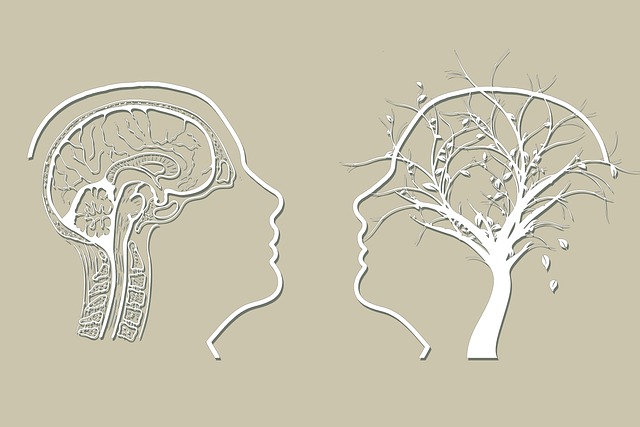Trauma among young adults in blended families is a hidden but significant issue, presenting challenges like adjustment disorders and mental health struggles. Targeted interventions, such as specialized therapy and self-care strategies, are crucial for healing. Community outreach programs provide vital support networks tailored to their needs. Therapy for Young Adults Blended Families equips individuals with tools to process trauma, fostering resilience. Targeted support services address specific blended family dynamics, promoting mental wellness. Effective delivery requires multifaceted approaches, including tailored therapy methods and safe spaces, adapted based on client feedback and emerging research.
Trauma support services are crucial for young adults from blended families, who often face unique challenges. This article delves into understanding trauma’s profound impact on this vulnerable group and explores effective strategies. We examine the role of specialized therapy in addressing their specific needs, focusing on innovative approaches to implementation. By discussing blended family-specific support services, we aim to enhance continuous improvement in care. Discover practical strategies for delivering tailored interventions that promote healing and resilience among young adults navigating complex family dynamics.
- Understanding Trauma and Its Impact on Young Adults from Blended Families
- The Role of Therapy in Supporting This Specific Population
- Implementing Blended Family-Specific Support Services
- Strategies for Effective Delivery and Continuous Improvement
Understanding Trauma and Its Impact on Young Adults from Blended Families

Trauma, often overlooked as a silent epidemic, profoundly affects young adults from blended families, who are uniquely positioned at a crossroads between two households and their respective histories. This demographic faces distinct challenges, such as adjusting to new living arrangements, understanding complex family dynamics, and coping with potential intergenerational trauma. The impact can manifest in various ways, including anxiety, depression, and difficulty forming secure attachments.
Addressing these issues requires tailored interventions like therapy for young adults from blended families, focusing on both individual healing and strengthening familial bonds. Incorporating self-care routine development strategies for better mental health can empower these individuals to cultivate inner strength and resilience. Additionally, community outreach program implementation can foster a supportive network, offering peer connections, educational resources, and practical assistance tailored to their unique circumstances.
The Role of Therapy in Supporting This Specific Population

Therapy plays a pivotal role in supporting young adults from blended families who have experienced trauma. This specialized form of support is crucial for helping individuals process and overcome their past traumas, fostering resilience and emotional healing processes. Through therapy, young adults can learn healthy coping mechanisms, explore complex emotions, and develop effective strategies to navigate interpersonal relationships within their blended families.
Blended family dynamics introduce unique challenges that therapy addresses effectively. Sessions often incorporate tailored activities and exercises, such as emotional healing processes facilitated through journaling, to help clients articulate and understand their experiences. By encouraging self-reflection and providing a safe space, therapy empowers young adults to cultivate mental wellness and build resilience, enabling them to thrive despite the complexities of their family structures.
Implementing Blended Family-Specific Support Services

Implementing Blended family-specific support services is a vital step in addressing the unique challenges faced by young adults from these families. Many blended families struggle with complex dynamics, including step-parents, half-siblings, and the potential for different parenting styles and expectations. Therapy for Young Adults within this context offers a specialized approach to help individuals process their experiences and emotions, fostering self-care practices and empathy building strategies. By providing a safe space for open dialogue, therapists can assist young adults in navigating identity issues, family relationships, and any trauma that may arise from the transition.
Self-Care Practices are enhanced through these services as participants learn healthy coping mechanisms tailored to their specific needs. Mental Health Policy Analysis and Advocacy play a crucial role in ensuring that support systems like these are accessible and well-integrated into the community. By promoting understanding and reducing stigma, advocacy efforts contribute to a broader mental health policy framework that recognizes the distinct requirements of young adults from blended families.
Strategies for Effective Delivery and Continuous Improvement

Effective delivery of trauma support services for young adults from blended families requires a multifaceted approach. One key strategy is integrating therapy methods tailored to this specific demographic, focusing on individual and group sessions that foster connection, understanding, and coping skills development. By creating safe spaces where individuals can share their experiences and build resilience, therapists can significantly enhance the impact of treatment.
Continuous improvement in these services necessitates regular evaluation and adaptation. This involves incorporating feedback from clients and family members to refine programs, ensuring they remain relevant and effective. Additionally, staying abreast of emerging research in mental health education programs design, particularly those focusing on anxiety relief, allows service providers to implement innovative techniques that cater to the unique needs of young adults navigating complex familial dynamics.
In conclusion, supporting young adults from blended families who have experienced trauma requires a multifaceted approach. By combining therapy tailored to their unique needs with targeted support services, we can help them navigate the challenges they face and foster healthy development. As we continue to understand the impact of trauma on this population, it’s clear that implementing blended family-specific interventions is crucial for promoting resilience and well-being among young adults. Through effective delivery strategies and ongoing improvement, we can ensure that these services meet the evolving needs of those who have been affected by the complexities of blended families.














